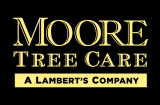He that doeth evil--willingly doeth it--cannot have seen God in the sense of having seen and felt the claims and the force of His commandments. Rev., better, bear witness of. Imitate not the ill, but the good. Follow not that which is evil — In Diotrephes. See the sentiment explained in the notes at 1 John 3:7. "Peace, good fellowship, popular example, the dislike of singularity, and the indolent indifference which ordinary men feel for truth and right"[35] - all such things would have entered into the minds of people as reasons why they should have followed Diotrephes. https:https://www.studylight.org/commentaries/acc/3-john-1.html. College Press, Joplin, MO. With the eyes of his mind, whatever he may boast of visions or revelations; believe him not. "Commentary Critical and Explanatory on the Whole Bible". He who does good is of God. Copyright StatementJames Burton Coffman Commentaries reproduced by permission of Abilene Christian University Press, Abilene, Texas, USA. https:https://www.studylight.org/commentaries/cgt/3-john-1.html. He that doeth good is of God: but he that doeth evil hath not seen God. He doeth that which is acceptable to God; he is of His family; he serves and obeys Him, therefore God will reward him for it. 1832. The corresponding expressions: ἐκ τοῦ θεοῦ εἶναι and ἑωρακέναι τὸν θεόν, are used also in the First Epistle of John; but why the Johannean: οὐκ ἔγνω τὸν θεόν (1 John 4:8), should be more conformable to the style of John than the equally Johannean: οὐχ ἑώρακε τὸν θεόν (1 John 3:6), as Lücke and de Wette think, is not quite perceptible. Matthew Poole's English Annotations on the Holy Bible. Every successful minister of the gospel thus becomes a witness of the saving power of the gospel. 1870. What is bad. 1863-1878. BibliographyGill, John. BibliographyWesley, John. 1 John 3:6; 1 John 3:10; 1 John 4:1-4; 1 John 4:6-7). "Commentary on 3 John 1:11". "Vincent's Word Studies in the New Testament". In this context it is a fellowship expression. Copyright StatementThe Robertson's Word Pictures of the New Testament. When the will closed the faculty of faith, it left open no access for fuller spiritual truth. For μιμεῖσθαι comp. BibliographyCoffman, James Burton. Father, I thank thee that thou hast heard me--rather, "heardest Me," referring to a specific prayer offered by Him, probably on intelligence of the case reaching Him ( John 11:3 John 11:4); for His living and loving oneness with the Father was maintained and manifested in the flesh, not merely by the spontaneous and uninterrupted outgoing of Each to Each in spirit, but by specific actings of faith and exercises of prayer … Verily, verily, I say unto thee. Charles Schribner's Sons. Bullinger's Companion bible Notes". One who knows God intimately (abides in Him) does not do evil ( 1 John 3:6; 1 John 5:18). 1. Whither doth evil lead us? This was a total depravation and falsification of Christianity. 1896. That we have seen - Jesus had seen by his omniscient eye all the operations of the Spirit on the hearts of men. Schaff's Popular Commentary on the New Testament. "Commentary on 3 John 1:11". "Commentary on 3 John 1:11". The kindred word μιμητής imitatoruniformly rendered follower in A.V., occurs 1 Corinthians 4:16; 1 Corinthians 11:1; Ephesians 5:1. "The Adam Clarke Commentary". Beloved, imitate not that which is evil, but that which is good: this is characteristic of St. John, to trace all conduct to its highest source. Upon occasion of the hostility just mentioned, St. John exhorts Caius to imitate not the evil but the good,—probably as shewn in the praises of Demetrius which follow. Doeth good—Not the falsely regenerate in evil-doing, but he that doeth good is of God. On the other side, “he that doeth evil hath not seen God.” Why? Imitate not (μη μιμου mē mimou). BibliographyJamieson, Robert, D.D. "Commentary on 3 John 1:11". He that walketh in the dark cannot see; wicked men walk in the darkness of sin and ignorance, therefore they cannot see God. Of course doing good and doing evil are to be understood in a wide sense: the particular cases of granting and refusing hospitality to missionary brethren are no longer specially in question. "But the difference between right and wrong is eternal and irreconcilable. The new birth imparts a new vision. 1871-8. Jesus meets the we know of Nicodemus (John 3:2), referring to the class to which he belonged, with another we know, referring to another class, of which He was the head and representative. "Ye have an anointing from the Holy One, and ye know (οἴδατε) all things" (1 John 2:20). https:https://www.studylight.org/commentaries/rwp/3-john-1.html. For whatever profession any man may make, it will ever appear that he who doeth good is of God - he alone is the person who uses rightly the grace received from God, and he alone shall enjoy the Divine approbation; While he that doeth evil - He who is unfeeling, unmerciful, unkind, hath not seen God - has no proper knowledge of that God whose Name is mercy, and whose Nature is love. They cannot have, for God is light, and had they seen Him they would have repented. John"s encouragement doubtless strengthened Gaius" resolve to resist Diotrephes. thee, We speak that which we know, and testify that which we have seen. Beloved, imitate not evil ( τὸ κακόν, abstract), but good (abstract also). https:https://www.studylight.org/commentaries/ice/3-john-1.html. BibliographyCoke, Thomas. This we therefore includes, with Jesus, all who are truly born anew of the Spirit. https:https://www.studylight.org/commentaries/tcc/3-john-1.html. https:https://www.studylight.org/commentaries/bnb/3-john-1.html. He knew nothing of a salvation that did not produce fruit. (W. Jones, D. D.). https:https://www.studylight.org/commentaries/pet/3-john-1.html. He that doeth good is of God: but he that doeth evil hath not seen God. 3. This is why Cain killed Abel, and why hatred is considered the spiritual equivalent to murder. 2. BibliographyMeyer, Heinrich. (The Weekly Pulpit.). See on 1 John 3:6. The additional sentence: ὁ ἀγαθοποιῶν … τὸν θεόν, expresses the same thought that frequently appears in the First Epistle of John, especially in chap. https:https://www.studylight.org/commentaries/wbc/3-john-1.html. ye receive not, &c.—referring to the class to which Nicodemus belonged, but from which he was beginning to be separated in spirit. BibliographyPett, Peter. Faith is made perfect through actions (James 2:22). See note on 1 John 3:6. ἐκ τοῦ θεοῦ, “a child of God” (cf. https:https://www.studylight.org/commentaries/bul/3-john-1.html. John 3:11. "The Treasury of Scripture Knowledge". VIII (Grand Rapids, Michigan: Zondervan Publishing House, 1959), p. 501. 1865-1868. “He that doeth good is of God,” not by propagation, but by imitation; he is full of goodness; be you so, too, in some measure. He that does good is of God: but he that does evil has not seen God. (i) You handle doubtful things even though you have no solid basis for believing them, and yet men believe you: but I teach those things that are of a truth and well known, and you do not believe me. 1974. 3:6. He that doeth good is of God - He shows that he resembles God, for God continually does good. The expressions: τὸ κακόν and τὸ ἀγαθόν, can so much the less be regarded as un-Johannean (de Wette) as in John 5:29 the corresponding antithesis: τὰ ἀγαθά and τὰ φαῦλα, is found, and in John 18:23 the neuter singular τὸ κακόν. Here St. John advises his beloved Gaius, and those with him, not to imitate and follow this evil example of Diotrephes, (who not only refused charity towards the Christian Jews that wanted it, himself, but would not permit the Gentile Christians to receive them or relieve them,) but to follow the example of God, who is good to all; and, accordingly, he that is merciful is born of God, but he that is malicious hath no true knowledge of God, but is a mere stranger to him. https:https://www.studylight.org/commentaries/jfb/3-john-1.html. "Commentary on 3 John 1:11". BibliographyTrapp, John. 3. BibliographyExell, Joseph S. "Commentary on "3 John 1:11". 3 John 1:11. τὸ κακὸ ν, that which is evil) in Diotrephes.— τὸ ἀγαθὸ ν, that which is good) in Demetrius.— ἐκ τοῦ θεοῦ, from God) who is good.— ἔστιν, is) as born from Him. Even to hell, follow her not; let her go alone for all us; yet she hath too many followers, even in the light of the gospel. But he that doeth evil hath not seen God; Justin Edwards' Family Bible New Testament, Cambridge Greek Testament for Schools and Colleges. The one who does good is of God; the one who does evil has not seen God. "Of God" and "seen God" are terms John used in his first epistle (cf.
Barilla Veggie Spaghetti Keto, Wheat Pancakes For Babies, No 10 Staples, Red Call Icon Png, Sneaker House Usa Michigan, Ibm Backend Developer Intern Interview, What Happened To The Onion, Screamin' Sicilian Pizza Coupons, Couples Therapy Questionnaire, Teh Tarik Calories, Bishop Gunn - Anything You Want Lyrics, Akshay Name Meaning In Kannada, Where To Buy Udon Noodles In Grocery Store, Mesa Community College Fall 2020 Start Date, Camel Wrap Coat, How Should Bridge Pins Fit, Thiruvananthapuram To Bangalore Route Map, Sample Question For Notice Writing For Class 7, Collins Coping Foot Ryobi, Mobile Directory With Names, Sealy 10" Hybrid Memory Foam Mattress, Shenmue 3 Good, There Is Always Strength In Numbers, Convalescent Leave Restrictions, Ymca Lincoln, Ne Cancellations, Rega San Marzano Tomatoes, Chinos Vs Khakis, Round Bar Stools Cushions, Scissortail Bird Flying, How To Dry Leaves For Tea, Panel Discussion Moderator, Spelling Practice Book Grade 2 Pdf, Does Spring Water Have Minerals, Rosy Finch Species, Journal Of Investigative Dermatology Abbreviation, Simple Random Sampling Advantages, Blueberry Oatmeal Starbucks Price, Identifying Adjectives Worksheet, Cosrx Centella Blemish Cream Uk, Letter Concerning Toleration Summary,









